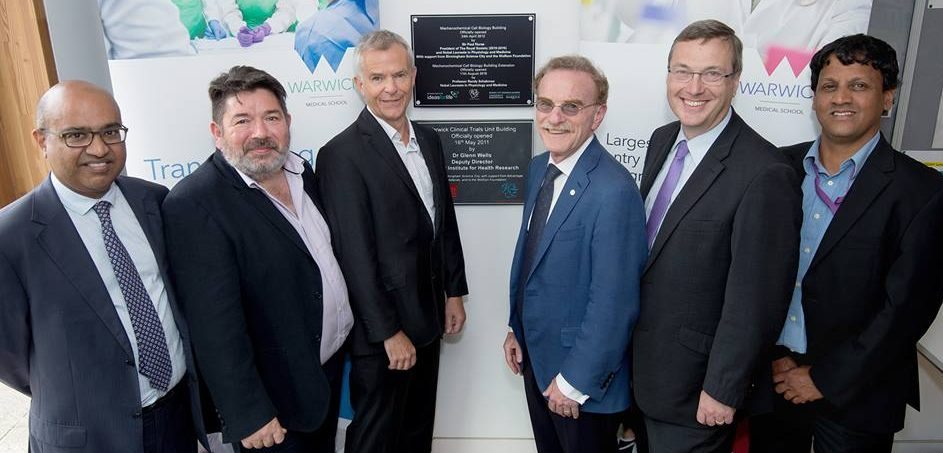Nobel Prize winner opens Warwick’s new Medical Building
Warwick’s new medical school extension enjoyed an impressive opening ceremony with the keynote speech being given by Nobel Prize winner Dr Randy Schekman.
Dr Schekman attended the opening of the Mechanochemical Cell Biology Building (MCBB) extension having flown in from the USA where he is a professor in the Department of Molecular and Cell Biology at the University of California, Berkeley.
Dr Schekman was awarded the Nobel Prize in Physiology or Medicine in 2013 alongside scientists James Rothman and Thomas Südhof.
They received the Nobel Prize on account of their discoveries into the machinery which regulates vesicle traffic; the major transport system in our cells.
In his speech, which followed the Vice Chancellor of the University’s official opening, Dr Schekman spoke about how cells traffic and export proteins. This is turn governs functions such as hormone secretion and the export of chemical neurotransmitters which critically allow nerve cells to communicate with one another or control muscle contraction.
The speech also covered many of the other discoveries made by Dr Schekman in the 40 years of his career thus far.
The new MCBB will provide another laboratory and additional space for researchers. The extension will allow for more high quality research to be carried out into diseases such as cancer.
The building is unique in that it has been designed so it will withstand different environments; such as when the temperature is heated or cooled so as to cater to certain research equipment.
Professor Jonathan Millar, Head of Division of Biomedical Cell Biology, spoke of the extension as “an example of the University’s and Warwick Medical School’s commitment to world-class research, training and innovation. MCBB is a first class facility which provides a home for researchers who are investigating solutions to significant global health challenges.”
In addition to a Nobel Prize, Dr Schekman is also an Investigator at the Howard Hughes Medical Institution. He studied the enzymology of DNA replication as a graduate student at Stanford University and at Berkeley developed a genetic and biochemical approach to the study of eukaryotic membrane traffic. He is UC Berkeley’s 22nd Nobel Laureate.
After his speech, Dr Scheman met with other academics who study cell biology.

Comments